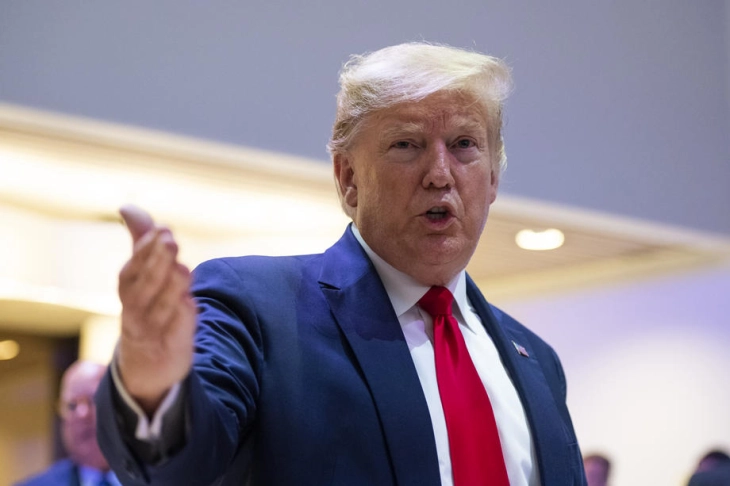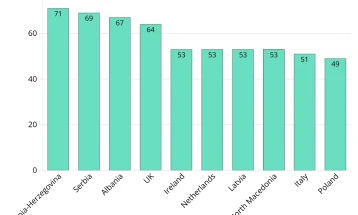Trump slaps 25% tariffs on all steel and aluminium imports into US
- President Donald Trump on Monday announced tariffs of 25% on all steel and aluminium imports into the United States. The Republican signed orders to this effect at the White House and said that the tariffs would apply without exceptions and to imports from all countries.

Washington, 11 February 2025 (dpa/MIA) - President Donald Trump on Monday announced tariffs of 25% on all steel and aluminium imports into the United States.
The Republican signed orders to this effect at the White House and said that the tariffs would apply without exceptions and to imports from all countries.
"This is a big deal, the beginning of making America rich again," Trump said as he signed the orders at the White House.
The US government did not initially publish the documents signed by Trump, but several US media outlets reported, citing government sources, that the tariffs would kick in on March 4.
Although many experts consider tariffs counterproductive, Trump regularly presents them as a silver-bullet solution to fix the US economy.
Trump had announced he was planning on introducing tariffs on steel and aluminium on Sunday, to which the European Union responded that it "sees no justification" for the move.
"We will react to protect the interests of European businesses, workers and consumers from unjustified measures," said a statement from the European Commission published on Monday before Trump signed the orders.
The German government also expressed concern after Trump's announcement on Sunday.
A spokesperson for Germany's Ministry for Economic Affairs and Energy told journalists in Berlin that tariffs would affect the country's export-oriented economy.
When asked whether possible countermeasures could once again affect US products such as motorcycles or whiskey, as was the case during Trump's first term in office, the spokesperson said that there was no automatism based on the experience of last time.
During his first term in office from 2017 to 2021, the Trump administration also imposed tariffs on steel and aluminium from the EU. The bloc responded with retaliatory tariffs on US products such as jeans, bourbon whisky, motorcycles and peanut butter.
During Joe Biden's term in office, an agreement was reached that defused the tariffs.
Germany is the largest steel producer in the EU and ranks seventh in the world behind China, India, Japan, the US, Russia and South Korea. The US is the most important market for German exporters across all industries.
According to the American Iron and Steel Institute, the US sources most of its steel from Canada, Brazil and Mexico. Germany and China are also among the top ten countries of origin for steel imports.
Trump regularly uses tariffs in his foreign policy and as a means of exerting pressure to achieve political goals. At the beginning of February, a North American trade war was averted for the time being,
Trump announced 25% tariffs on imports from neighbours Mexico and Canada, but the planned tariffs were suspended for an initial period of 30 days following promises from Ottawa and Mexico City to increase border security measures.











